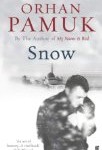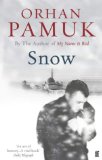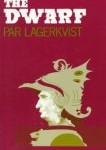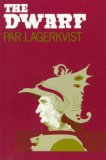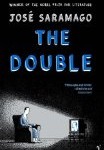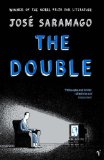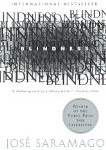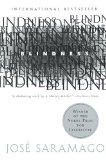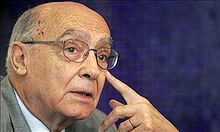 This week’s Weekly Geek task is to find out some interesting facts about your favourite author. I wasn’t sure whether I’d participate, but once I started looking up José Saramago I couldn’t stop – he is such an interesting man!
This week’s Weekly Geek task is to find out some interesting facts about your favourite author. I wasn’t sure whether I’d participate, but once I started looking up José Saramago I couldn’t stop – he is such an interesting man!
.
Portuguese author José Saramago was born in 1922 into a family of landless peasants. Their surname was De Sousa, but an error in registering his birth meant that his father’s nickname ‘Saramago’ was accidentally added to his birth certificate. The drunken registrar also wrote his birth date wrong on the form – meaning his official birth date is two days after his real one!
Saramago is proud of his impoverished background:
“If my grandfather had been a rich landowner and not an illiterate pig breeder, I wouldn’t be the man I am today,”
At the age of 2 Saramago’s family moved from their small village to the city of Lisbon where his father became a policeman. This failed to improve their financial situation and the family had to pawn their warm blankets to have enough money to survive.
At 13, Saramago started at a vocational school, where he trained to be a car mechanic. He didn’t own any books, but his love of reading meant that he often went to the library after studying.
In 1947 his first book The Land of Sin was published, but it wasn’t until 1982 that he finally acheived critical acclaim for his book Baltasar and Blimunda.
Saramago is a member of the communist party and a proclaimed atheist. His views have caused controversy in the strongly Catholic country of Portugal and on the publication of The Gospel According to Jesus Christ in 1991 he was forced to move to the Canary Islands.
He won the Nobel Prize for Literature in 1998, but described winning as not being very important.
He is often described as being cold,” “arrogant,” and “unsympathetic.” but when questioned about his attitude Saramago replied:
“I am not a bad person,” “I hurt only with my tongue!”
I love Saramago’s writing. If you haven’t read any of his books then I highly recommend you try Blindness.
Do you love Saramago’s books?
